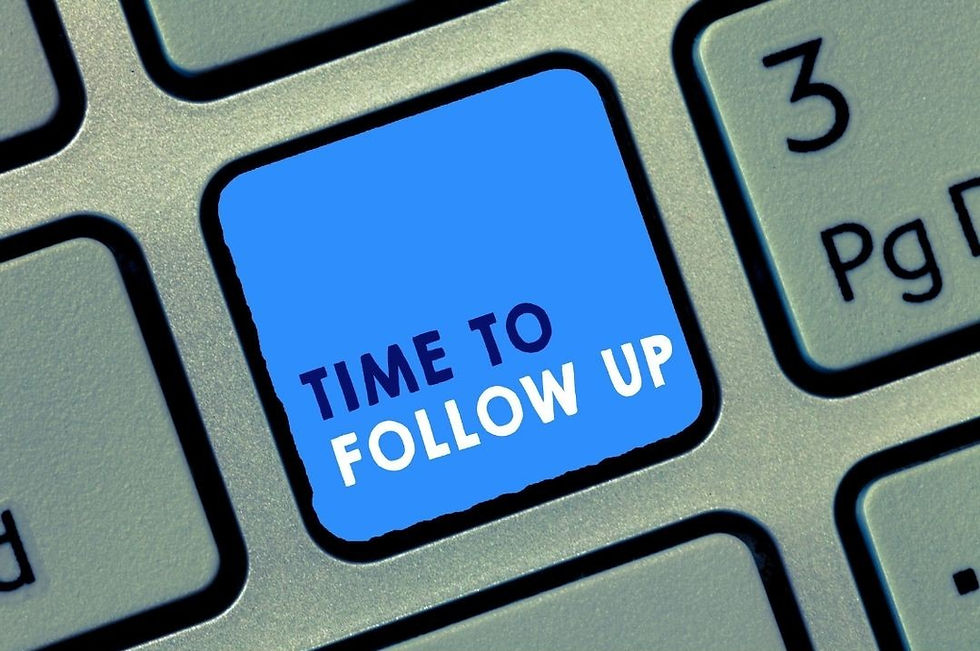Preparing for Customer Meetings
- Progressus

- Nov 27, 2024
- 2 min read

Time is often limited during prospective customer meetings. Being prepared for such meetings in advance, allows all involved to make the most of their time together by focusing the discussions on mutual things that matter the most to the prospective client, significantly impacting the effectiveness of the meeting and the potential outcomes.
Key steps to effectively prepare include:
Research the Prospect – to gain valuable insights into your customers' business, including their products, their clients, their business goals, ambitions, and potentially some of their challenges. This understanding allows you to tailor your message and solutions to meet the prospect’s specific situation at the time. Similarly, research the people who you will be meeting. Social media platforms and leveraging your professional network are typically good ways to go about accomplishing this.
Set Clear Meeting Objectives - what do you want to achieve during the meeting? Always aim to set realistic and achievable meeting objectives. This could include addressing specific client concerns, discussing project updates, exploring opportunities, and/or closing a sale. Establishing clear meeting goals ahead of the meeting is fundamental to being able to evaluate your own performance; and identify actions you have done well and those you can do better next time.
Create a Meeting Agenda - prepare a structured agenda that includes all the topics you plan to discuss, time allocations for each item, and any necessary materials. Share this agenda with the prospective client beforehand to align expectations and encourage their input. However, be prepared to adapt your agenda based on the prospective client's needs or unexpected discussions that may arise during the meeting.
Prepare Relevant Tools - compile any necessary materials such as explanations, trial reports, brochures, or product samples that may be needed to support your discussion. Such material should also include; stories, facts, and a list of talking points and questions that you can use to help the conversation develop.
Practice - rehearse your conversation starter and the key discussion points. Try to anticipate potential questions or objections that may come up and think about your repose to those. Practicing helps build confidence and ensures a smoother delivery during the actual meeting.
Check Details - verify the date, time, location (or virtual platform), and any technical requirements for the meeting. Do this a couple of days before you arrive and a few hours before you start your travel to the meeting. Always plan to arrive earlier than the meeting time. Give yourself time to relax and collect your thoughts.
By investing time in meeting preparation, you significantly increase your chances of achieving your desired outcome, such as closing deals or advancing discussions further.
In the December issue of AgriTalk, we will consider best practices for conducting customer meetings.
Do you need help to get the most out of customer meetings, or want to find out more about upskilling your team’s commercial skills? Reach out to us for an inside to the 7Cs Selling Process and Workshops which we have specifically designed for Animal Nutrition and Animal Health customer-facing professionals. Please contact Yiannis Christodoulou at yiannis@progressus.asia, or Akachai at +66 (0) 613935776 for a one-on-one private, and confidential discussion.



Comments